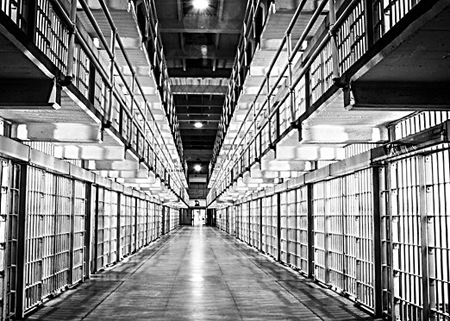
By Frederick H. Lowe,
TriceEdneyWire.com,
 Congress has passed legislation reducing sentences for some inmates serving time in federal prisons, but the law won’t affect state prisons and jails where the majority of black men are serving time.
Congress has passed legislation reducing sentences for some inmates serving time in federal prisons, but the law won’t affect state prisons and jails where the majority of black men are serving time.
The legislation called “First Step Act,” Senate bill 2795, passed by a vote of 87 to 12. The House of Representatives passed the legislation 358-36. Now it will go to President Trump who has promised to sign it.
First Step is designed to reduce recidivism, according to GovTrac, which monitors federal legislation.
The bill also would place inmates in prisons close to their homes to increase the likelihood of more family visitation, order home confinement for low-risk prisoners, prohibit the use of restraints on pregnant prisoners, expand adult employment for returning prisoners through federal programs and treatment of prisoners for heroin and opiod use and addiction and ease federal sentencing laws.
The Sentencing Project, a Washington, D.C.-based advocate for a fair and effective justice system by promoting reforms, called the Senate’s passage of First Step “an important milestone in the long road to ending mass incarceration and curbing the excesses and harm in the federal justice system.”
“The last time Congress passed legislation to reduce sentences was in 2010 when Congress reformed the racially disparate mandatory minimum penalties governing crack cocaine offenses,” The Sentencing Project reported.
The Southern Poverty Law Center, which monitors hate groups, also praised the legislation, but the Law Center said the legislation will have no impact on state sentencing laws or on people who are incarcerated in state prisons or local jails.
In 2016, The Sentencing Project published “The Color of Justice: Racial and Ethnic Disparity in State Prisons,” which noted that African Americans are incarcerated in state prisons across the country at more than five times the rate of whites.” In some states, Iowa, Minnesota, New Jersey, Vermont and Wisconsin the disparity is 10 to 1. The Bureau of Justice Statistics reports that 35 percent of state prisoners are white, 38 percent are black and 21 percent Hispanic. Oklahoma has the highest incarceration rate of black males, which is 1 in 29 adults and 1 in 15 for black boys 18 to 21.
At the end of 2017, there was an estimated 1,489,600 inmates in state and federal prisons, according to the Vera Institute of Justice, which is based in New York.
There were 1,306,300 inmates in state prisons, 9,900 fewer than in 2016, and 183,300, or 5,900 fewer in federal prisons than in 2016. As of December 13, the figure was 180,790 in federal prisons.
The decline in the number of inmates in state prisons is not across the board. Some state prisons have added inmates.

Be the first to comment